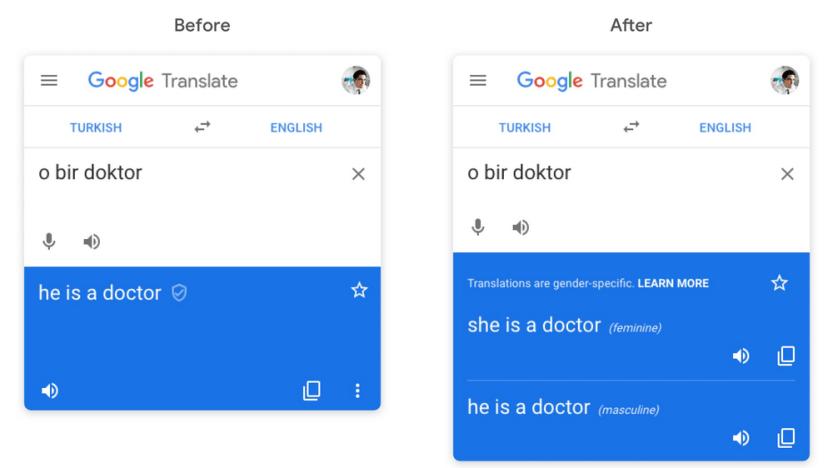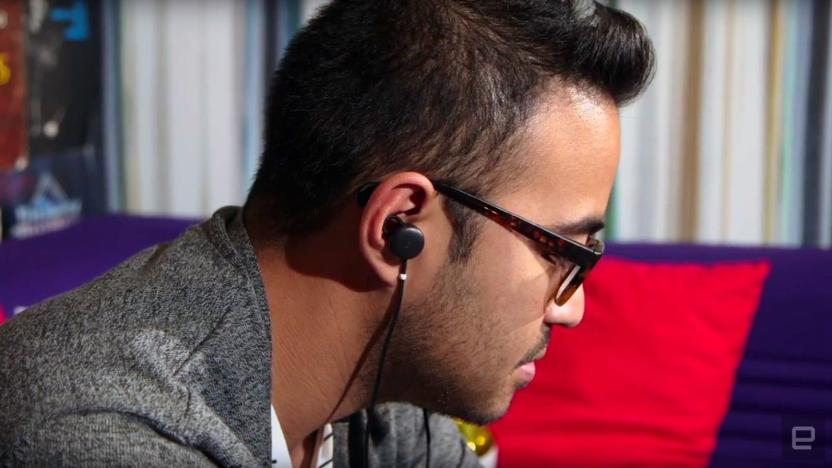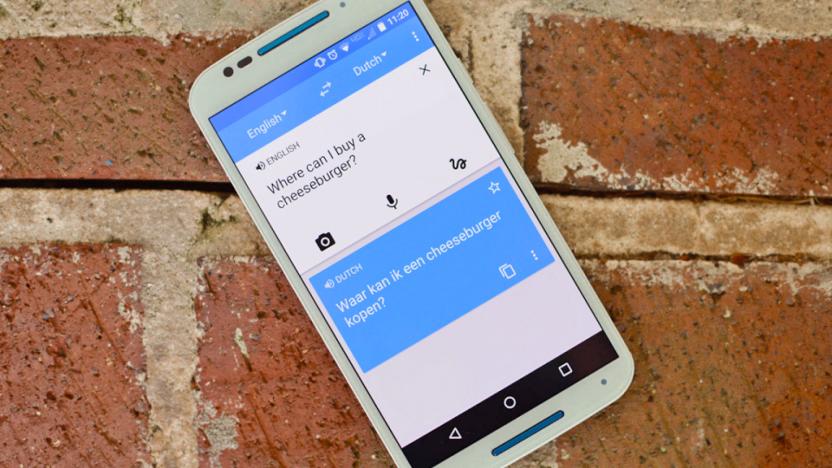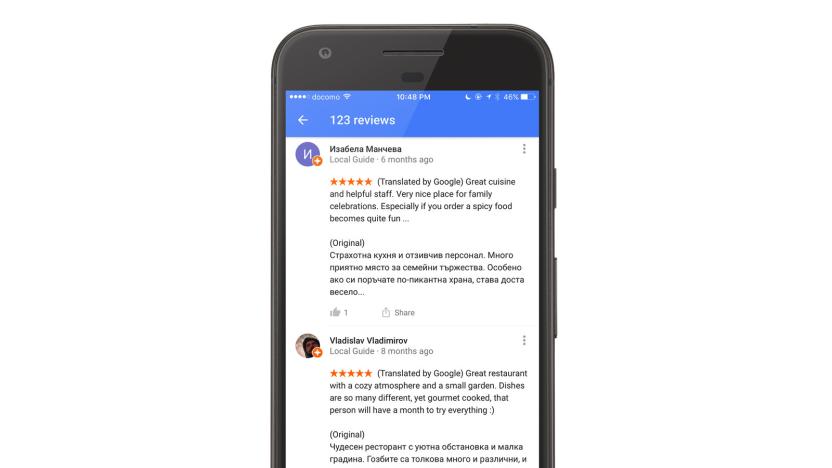translation
Latest

Google Assistant’s interpreter mode is ready to translate
Last month, we had our first glimpse of Google Assistant's interpreter mode for smart displays and speakers. Now, everyone with Google Home devices or smart displays (as well as some smart speakers) can try out the mode after Google started rolling it out to those devices, as noted by Android Police.

Google Assistant in a smart display offers helpful live interpretation
Google is taking its translation prowess a step further with a new Interpreter Mode for the Assistant in smart displays. Instead of having to whip out your phone, installing an app or opening a browser, using Interpreter Mode on Google Smart Displays is easier since you start it with a simple "Hey Google, German interpreter" command. Anyone with a Home Hub or Lenovo Smart Display can ask Assistant to be an interpreter in one of 27 supported languages (more will be added over time) in the next few weeks. But Google sees this as a bigger play in hotels. It's launching a pilot test this week at the concierge in Caesars Palace in Las Vegas, the Hyatt in San Francisco and the Dream Downtown hotels in New York City.

Google is working to remove gender bias in its translations
Google has taken a step towards reducing gender bias on the Google Translate website. In the past, when a word could be translated in either a masculine or feminine form, only one translation was provided, and because Google Translate learns from existing examples of translations, biases in those samples can be transferred to Translate's responses. That could sometimes result in words like "strong" or "doctor" leading to masculine translations while words like "nurse" or "beautiful" could produce feminine translations. Now, however, for certain languages, Translate will offer both a masculine and a feminine translation when either might be appropriate.

Microsoft brings live captions and subtitles to PowerPoint
Microsoft is rolling out a new accessibility feature for PowerPoint, one that stands to help speakers ensure their presentations are understood by their entire audience. The company notes that in cases where audience members are hard of hearing or speak a different language than the presenter, the speaker's presentation may not be fully communicated, but a new tool aims to solve that problem. Soon, PowerPoint will be able to transcribe and caption what a speaker is saying in real-time, giving audience members the option of reading what a presenter is saying. And the tool will also be able to translate speech into different languages, subtitling the presentation into a language of the speaker's choice.

Baidu develops its own take on real-time translation
Google isn't the only big game in town when it comes to real-time translations. Chinese search giant Baidu has developed its own system, STACL (Simultaneous Translation with Anticipation and Controllable Latency). Like its rival, it can start translating within a few seconds, without waiting for people to pause. Baidu, however, is counting on flexibility as its ace in the hole.

Pixel Buds live translations work with any Google Assistant headphones
To date, using Google's real-time translations has officially required a set of Pixel Buds. But what if you'd rather not use the official audio gear ? You might not have to. Droid Life has noticed that Google quietly changed a support page to state that real-time translation is available for "all Assistant-optimized headphones and Android phones," not just Pixel Buds and Pixel phones as the page said as recently as October 11th.

Google Translate for iOS can speak in your local accent
Until now, using Google Translate on your iPhone has meant listening to the same pronunciation for translations no matter where you live. That's not very considerate, and potentially a problem if you live in countries where foreign accents could make comprehension difficult. You won't have that issue from now on -- an update to Google Translate has added speech output in local versions of multiple languages, including English, Bengali, French and Spanish. You can hear English results with an Indian accent, for instance, or listen to French with a Canadian spin.

LinkedIn adds QR codes to make sharing your profile easier
LinkedIn is introducing two new features that will make the product more functional for its users. First, LinkedIn will now let you connect through QR codes. In the LinkedIn app, tap the QR code icon in the Home tab's search bar, and there you'll see a QR scanner as well as your own code. Scanning others' codes or uploading an image of one from your phone will take you to that user's profile and you can share your own code through messaging apps and email or add them to websites, email signatures, your resume or event materials like brochures, badges and lanyards.

Google improves Translate with offline AI
Google isn't going to sit idly by while Microsoft brings AI-based offline translation to your phone. The company is rolling out internet-free neural machine translation to its Translate apps for Android and iOS, promising much more accurate language conversion when you don't have the luxury of data. The initial release covers 58 languages, including a slew of European and Indian languages as well as common translation targets like Arabic, Chinese and Japanese.

Talk to me
Brooklyn, New York -- Scooby, my friend Gram's dog, isn't exactly inscrutable. As a rambunctious five-year-old pit bull, he usually makes whatever he wants you to know fairly apparent. When Scooby first sees you, he tells you he's happy by wagging his tail and, when he's feeling particularly naughty, jumping up to lick your face. When he wants to play tug-of-war, he grabs a toy and presents it, his intent clear. When he's concerned, he barks, but only once or twice.

Microsoft's AI-powered offline translation now runs on any phone
Like many translation apps, Microsoft Translator has only used AI to decipher phrases while you have an internet connection. That's not much help if you're on a vacation in a place where mobile data is just a distant memory. Well, you won't have to sacrifice quality for much longer -- Microsoft has released offline language packs for Translator (currently on Android, iOS and Amazon Fire devices) that use AI for translation when you're offline regardless of your hardware. The move not only provides higher quality translations, but shrinks the size of the language packs by half. If you're a jetsetter, you might not have to shuffle language packs whenever you visit a new country.

Microsoft says its AI can translate Chinese as well as a human
Run Chinese text through a translation website and the results tend to be messy, to put it mildly. You might get the gist of what's being said, but the sheer differences between languages usually lead to mangled sentences without any trace of fluency or subtlety. Microsoft might have just conquered that problem, however: it has developed an AI said to translate Chinese to English with the same quality as a human. You can even try it yourself. The trick, Microsoft said, was to change how it trained AI.

Microsoft's Slack rival gets translation and Surface Hub compatibility
Teams just turned one, and for its anniversary, Microsoft has unveiled new professional features for it that go well beyond what rivals like Slack offer. Probably the most important ones for enterprises are compatibility with their existing telephone systems, automatic in-line translation, Surface Hub support, and the ability for participants to dial in with regular telephones.

Amazon reportedly wants Alexa to be a real-time, universal translator
We've been dreaming of universal translators throughout the history of science fiction; Star Trek has only popularized the concept. As computing power and AI improves in real life, we're seeing the possibility of an actual real-time translation system become more of a reality. Products like Samsung's Bixby and Google's Pixel Buds and Assistant are early examples of the technology. Now, according to a report at Yahoo Finance, Amazon is looking to turn its ubiquitous Alexa digital assistant into a real-time universal language translator.

Earbud translators will bring us closer: The Future IRL
The moment Google Pixel Buds were used earlier this month to demonstrate real time translation from Swedish to English, people started freaking out about potential use cases for this kind of technology. But the thing is, Google isn't the only company taking this on.

Facebook translations are now entirely powered by AI
Facebook has been working on changing how it translates text in posts and comments and today it announced that its transition is complete. It means that translations should be quite a bit more accurate going forward.

BabelOn is trying to create Photoshop for your voice
Speech synthesis -- the process of artificially creating the human voice -- isn't anything new. But a startup from San Francisco called BabelOn is working on a particularly unique offshoot of this technology. In a nutshell, BabelOn wants to make it a trivial matter to translate your own voice into another language, even if you don't speak that language yourself. The company says its combo of software and custom-built hardware can analyze what makes up your voice and then use that to recreate speech that sounds just like you, in a language of your choosing. Initially, the company wants to use its technology for things like improving dubbed films or localizing video games, but eventually it wants to be able to translate your speech in real time, say while you're on a Skype call. Microsoft has done this for a while, translating Skype voice calls on the fly, but BabelOn promises that its translations will sound like you, not an anonymous Siri- or Cortana-like digital voice.

Bragi's Dash Pro earbuds pack improved audio and AI smarts
If tapping your cheek to ask Siri a question isn't futuristic enough, Bragi's new "wireless ear computers" might impress you. The headphone maker has announced two new versions of its high-end Dash earbuds, the "Dash Pro" and the "Dash Pro tailored by Starkey" (a hearing-aid manufacturer). These wireless, in-ear devices will also be powered by a new operating system (OS). The Bragi OS3 will bring new features like real-time face-to-face translation, a hands-free gestural menu system, and AI built right into the earpieces. Existing Bragi Dash owners can also upgrade to BOS3 to get these tools.

Facebook's new AI aims to destroy the language barrier
Is there anything AI can't make better? Artificial intelligence can recognize musical genres better than humans, improve our running performance and may soon become standard issue for the mobile devices in our pockets. Facebook, in fact, has found some stunning results in new research using convolutional neural networks (CNN), a type of artificial intelligence that uses the benefit of parallel processing to complete complex tasks. The social networking company's AI research team revealed research that shows these systems can outperform traditional language translation software by a factor of nine. In addition, the source code and trained systems are available under an open source license, making it easy for other researchers to verify and replicate the gains in their own work.

Google automatically translates local reviews when you travel
We all use user-generated reviews to figure out what points of interest are worth checking out. If you're traveling in a country where you don't speak the language, however, the reviews you rely on are usually in the local tongue. Google has a new feature to help you out. The company will now automatically translate reviews into your native language without any effort on your part.








